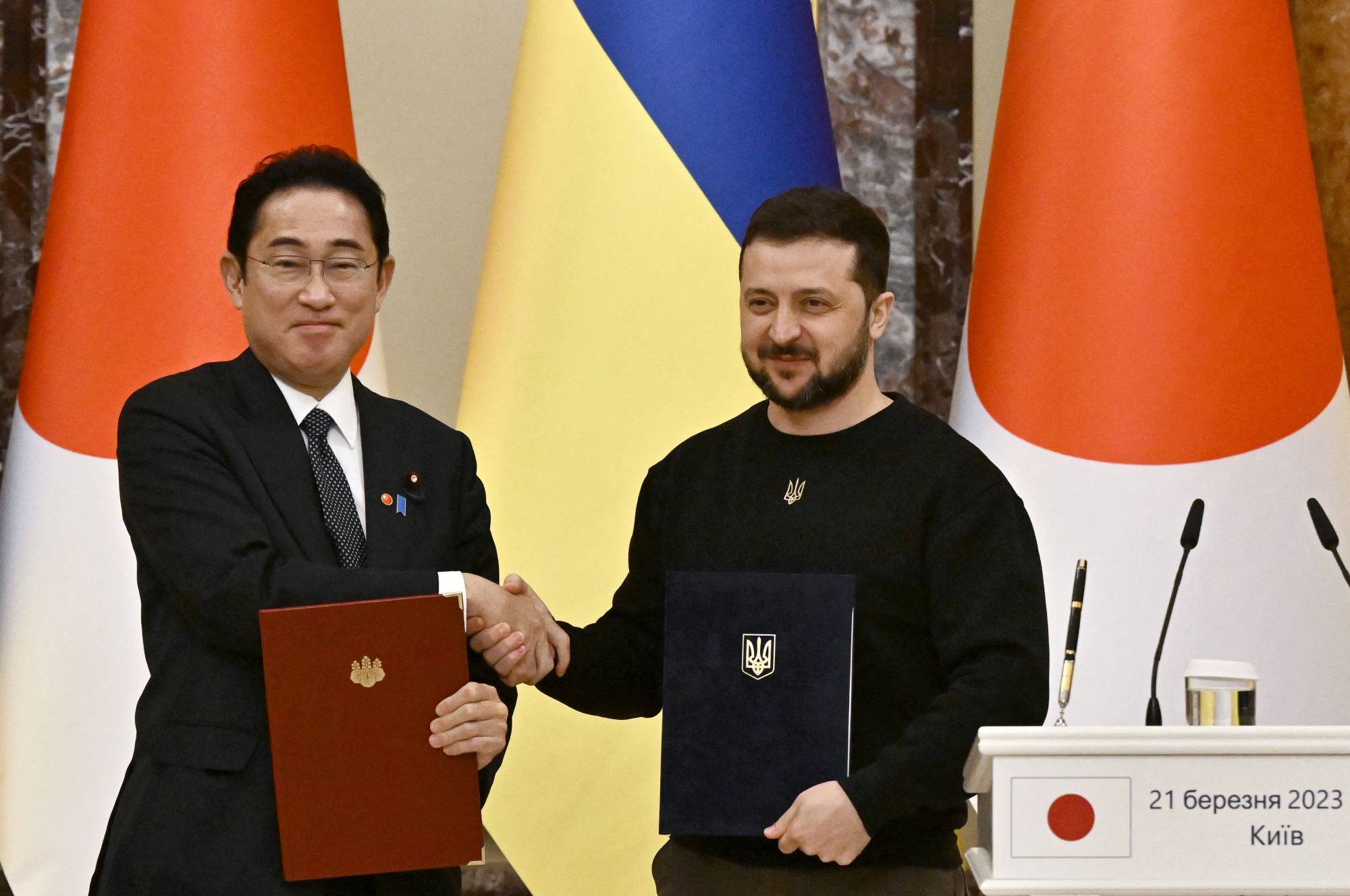Tone-deaf decisions by members of Prime Minister Fumio Kishida’s entourage have triggered another avoidable mishap for his administration.
Only a few months have passed since his son and political secretary Shotaro Kishida had a shopping spree during a diplomatic tour overseas in January. Yet now Kishida is under fire in parliament again for two more minor blunders.
Last week, Kishida was criticized for distributing manju — steamed buns filled with sweet bean paste — with his face and the Group of Seven logo printed on them at a recent party with political supporters. Days later, he gave Ukrainian President Volodymyr Zelenskyy a hissho shamoji — a large wooden paddle often used as a good-luck charm for victory over an opponent — during his recent trip to Kyiv. The gift has caused a flap in parliament with opposition members accusing the government of being insensitive.


















With your current subscription plan you can comment on stories. However, before writing your first comment, please create a display name in the Profile section of your subscriber account page.